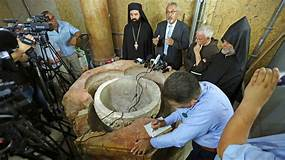This is error.
Misunderstanding the Audience of Scripture
Your claim that the Bible is written only for those who can read or cognitively listen does not exclude infants from its scope. Rather, Scripture constantly affirms that faith comes through hearing (Romans 10:17), which presumes personal belief and understanding—something that infants are not capable of exercising.
John 20:31 – "But these are written, that ye might believe that Jesus is the Christ, the Son of God; and that believing ye might have life through his name."
Acts 16:31 – "Believe on the Lord Jesus Christ, and thou shalt be saved, and thy house." (Belief is the requirement for salvation, not ritual baptism alone.)
Mark 16:16 – "He that believeth and is baptized shall be saved; but he that believeth not shall be damned." (Faith precedes baptism.)
2.
Acts 2:38-39 Does Not Teach Infant Baptism
Acts 2:38-39 is commonly misinterpreted to support paedobaptism (infant baptism), but a closer look reveals otherwise:
2:38 "Repent" This is an AORIST ACTIVE IMPERATIVE which means make a decisive decision. The Hebrew term for repentance meant a change of action. The Greek term meant a change of mind (see 2 Cor. 7:8-11). Repentance is a willingness to change. It does not mean a total cessation of sin, but a desire to please God, not self. As fallen humanity we live for ourselves, but as believers we live for God! Repentance and faith are God's requirements for salvation (cf. Mark 1:15; Acts 3:16, 19; 20:21). Jesus said "Unless you repent, you will all perish" (cf. Luke. 13:3,5). Repentance is God's will for fallen man (cf. 2 Pet. 3:9, Ezek. 18:23, 30, 32). The mystery of the sovereignty of God and human free will can be clearly demonstrated by repentance as a requirement for salvation. However, the paradox or dialectic pair is that it is also a gift of God (cf. Acts 5:31; 11:18 and 2 Tim. 2:25). There is always a tension in the biblical presentation of God's initiating grace and humanity's needed covenantal response. The new covenant, like the old covenant, has an "if. . .then" structure. There are several terms used in the NT which relate to the concept of repentance.
Acts 2:38-39 –
"Repent, and be baptized every one of you in the name of Jesus Christ for the remission of sins, and ye shall receive the gift of the Holy Ghost. For the promise is unto you, and to your children, and to all that are afar off, even as many as the Lord our God shall call."
Why This Does Not Support Infant Baptism:
Repentance Precedes Baptism – The command to repent is given before baptism. Infants cannot repent, making this passage inapplicable to them.
The "Promise" Refers to Salvation, Not Baptism – The passage does not specify infant baptism, only that salvation is available to all generations whom the Lord calls.
"Children" Does Not Exclusively Mean Infants – The Greek word τέκνα (tekna) simply means "descendants" or "offspring," and does not necessitate infants.
Thus, Acts 2:38-39 does
not prove infant baptism. Instead, it reinforces the pattern of repentance preceding baptism.
3. The "Baptism of Moses" in 1 Corinthians 10:1-4 Is Not Literal Baptism
"were baptized into Moses" The Greek manuscripts vary between PASSIVE VOICE (i.e., MSS א, A, C, D) and MIDDLE VOICE (i.e., MS B). The UBS4 cannot decide which is original, but puts the PASSIVE in the text. It seems to me the MIDDLE VOICE is contextually appropriate in emphasizing the volitional decision of the Israelites to follow Moses and the historical fact the
Jewish proselyte baptism was self administered.
This is an unusual phrase, found only here in the NT. It implies a parallel between the responsibility and privilege of the Mosaic covenant, and the New Covenant in Christ; both are from God and in some ways are similar. Here baptism is used as a symbol for one who follows.
There is a rabbinical tradition going back to Hillel (cf. b Ker 9a; bYeb 46a)
which relates proselyte baptism to the Red Sea event. See Richard N. Longenecker, Biblical Exegesis in the Apostolic Period, pp. 102-103.
1 Corinthians 10:1-4 – "Moreover, brethren, I would not that ye should be ignorant, how that all our fathers were under the cloud, and all passed through the sea; And were all baptized unto Moses in the cloud and in the sea."
This passage is metaphorical and does not refer to water baptism as practiced in the New Testament. Key observations:
Israelites "Passed Through" the Sea Without Getting Wet – Unlike New Testament baptism, which involves immersion, the Israelites passed through the Red Sea on dry ground (Exodus 14:22).
No Active Faith Required from Infants – This analogy does not teach baptismal regeneration but rather deliverance through faith in God's power.
Paul's Point is Spiritual Nourishment – The passage emphasizes spiritual sustenance from Christ, not a doctrinal argument for paedobaptism.
4. No Explicit Infant Baptisms in Scripture
Your argument states: "If infant baptism was not acceptable, where is the alternative—children being baptized later in life?" However, this assumes that
silence equals approval, which is a logical fallacy.
Every Baptism in Scripture Involves Personal Faith
Acts 8:12 – "But when they believed Philip preaching the things concerning the kingdom of God, and the name of Jesus Christ, they were baptized, both men and women."
(No mention of infants.)
Acts 8:36-37 – "What doth hinder me to be baptized? And Philip said, If thou believest with all thine heart, thou mayest."
Acts 10:44-48 – Cornelius' household received the Holy Spirit before baptism, proving that faith preceded baptism.
5. The Absence of an "Age of Accountability" Is Irrelevant
The claim that the Bible does not mention an explicit "age of accountability" does not validate infant baptism. Scripture implies an age where people are responsible for their own faith:
Deuteronomy 1:39 –
"Moreover your little ones, which ye said should be a prey, and your children, which in that day had no knowledge between good and evil, they shall go in thither, and unto them will I give it, and they shall possess it."
Isaiah 7:16 – "For before the child shall know to refuse the evil, and choose the good, the land that thou abhorrest shall be forsaken of both her kings."
These passages suggest children are not held accountable until they reach moral awareness.
6. Baptism Does Not Save (Refuting Baptismal Regeneration)
Romans 6:4 –
This passage teaches that baptism symbolizes dying and rising with Christ, but it does not say baptism itself regenerates.
Galatians 3:27 – "For as many of you as have been baptized into Christ have put on Christ." This does not mean baptism itself saves, but rather faith unites a person to Christ.
Ephesians 2:8-9 – "For by grace are ye saved through faith; and that not of yourselves: it is the gift of God: Not of works, lest any man
should boast."
Baptism is a work, and salvation is by faith alone.
7. History of Infant Baptism
Your claim that infant baptism was never contested before the Anabaptists is
historically inaccurate.
Opposition to Infant Baptism in Early Christianity:
Tertullian (c. 160-230 A.D.) –
"Let them come when they are growing up; let them come when they are learning… let them know Christ, then let them be baptized." (On Baptism, ch. 18)
Hippolytus (c. 170-235 A.D.) –
Advocated for catechism (instruction) before baptism, which implies cognitive faith before baptism.
Constantine (4th century) –
Delayed baptism until deathbed, showing that early Christians did not view baptism as necessary for salvation.
The first clear defense of infant baptism appears in Origen (c. 185-254 A.D.), but even then, it was not universal.
Infant baptism became common only after Augustine (4th-5th century), who tied it to original sin.
Conclusion
Scripture teaches that faith precedes baptism, disqualifying infants.
Acts 2:38-39 does not prove infant baptism.
1 Corinthians 10:1-4 is metaphorical, not an argument for paedobaptism.
No explicit infant baptisms are recorded in the New Testament.
The historical record shows infant baptism was debated and not universal.
Baptism does not regenerate but is an act of obedience following faith.
Therefore, your argument for infant baptism is based on misinterpretations of Scripture, historical revisionism, and theological assumptions not supported by the Bible.
Have a good day
@synergy.
J.








